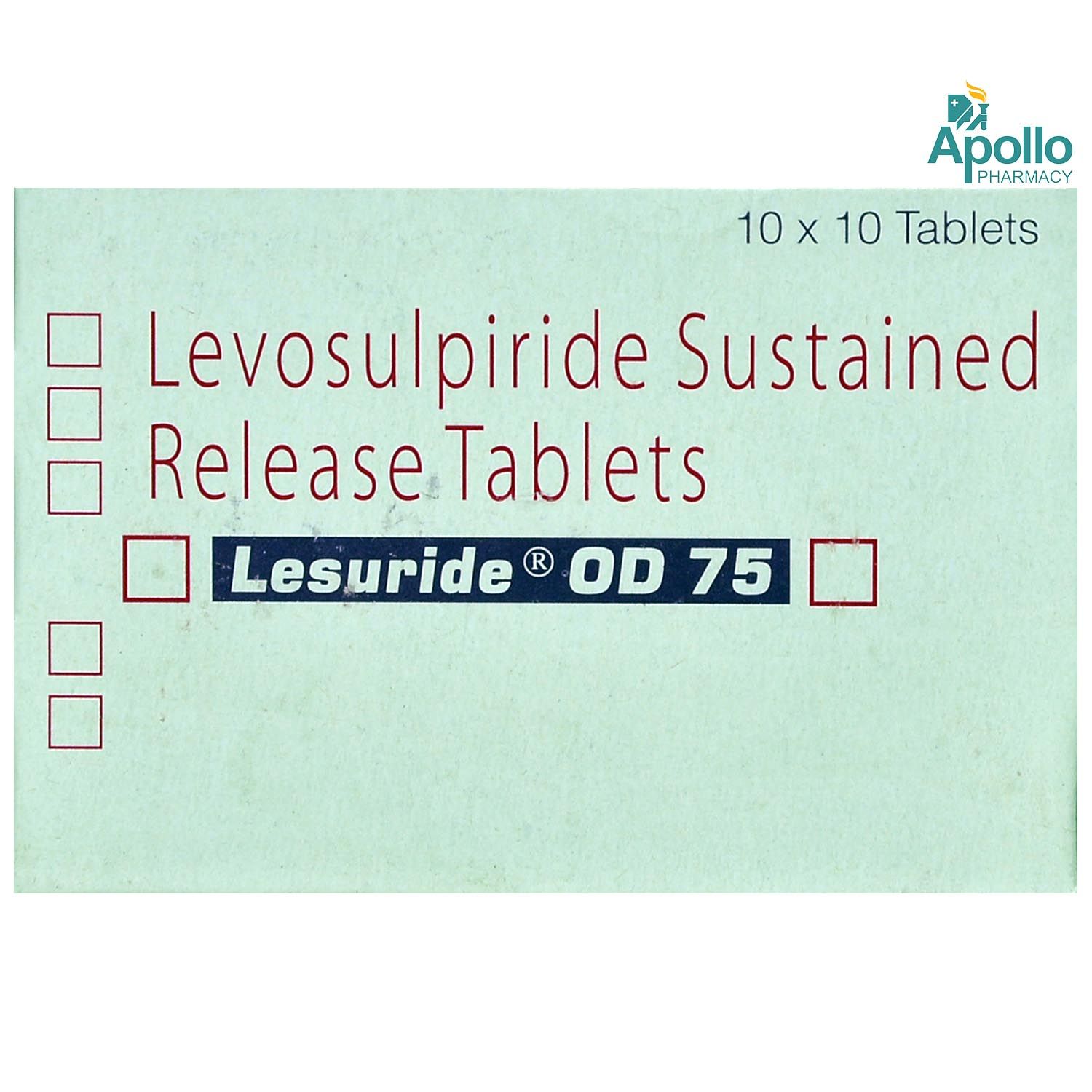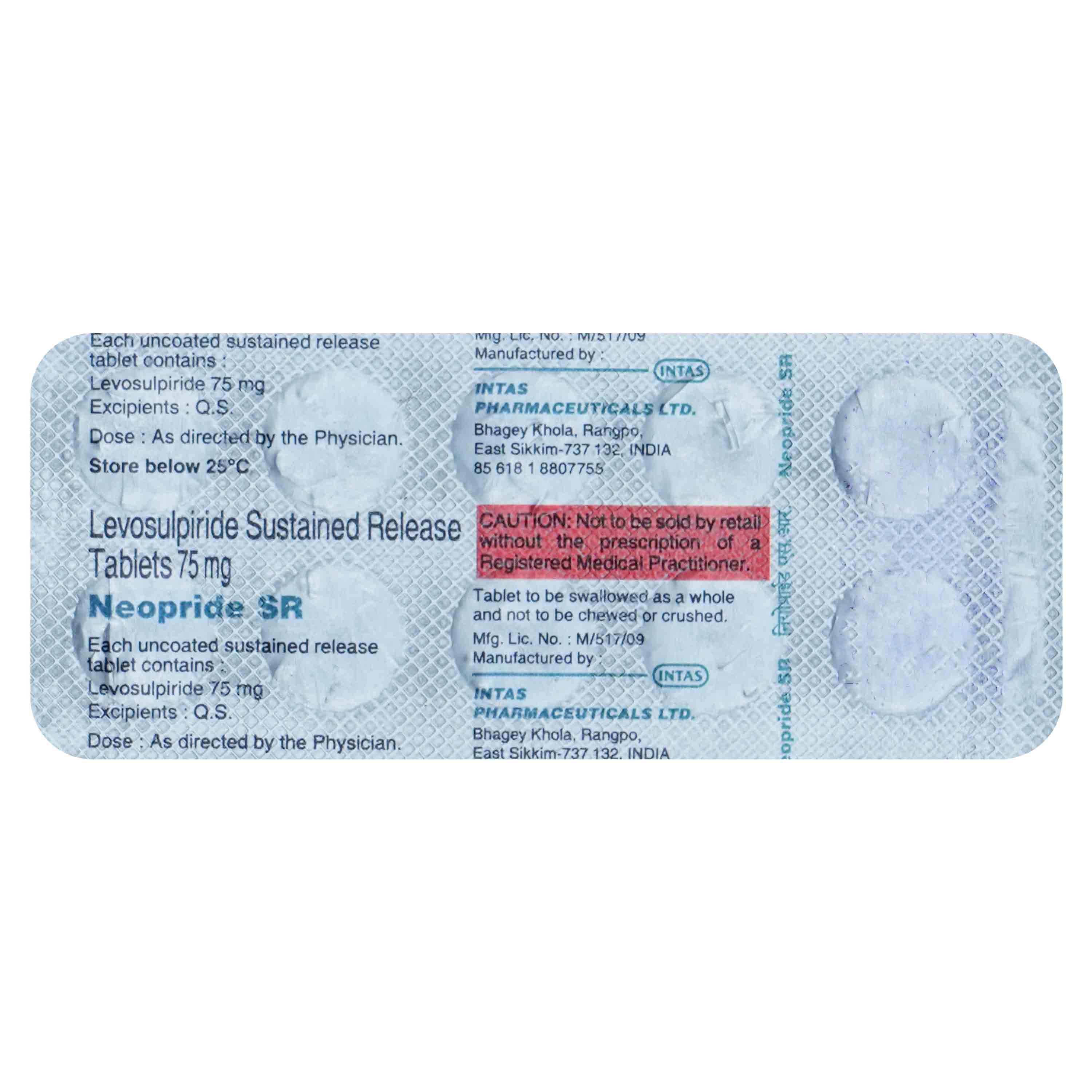Levorab Capsule 10's
₹134.1*
MRP ₹149
10% off
₹126.65*
MRP ₹149
15% CB
₹22.35 cashback(15%)
Free Delivery
With Circle membership
(Inclusive of all Taxes)
This offer price is valid on orders above ₹800. Apply coupon PHARMA10/PHARMA18 (excluding restricted items)
Know Your Delivery Time
Provide Delivery Location

Whats That

Secure Payment

India's Most Trusted Pharmacy

Genuine Products
Composition :
Manufacturer/Marketer :
Consume Type :
Return Policy :
Expires on or after :
About Levorab Capsule
Levorab Capsule belongs to a group of medicines called 'prokinetics, psycholeptic and antipsychotics' used to treat gastroesophageal reflux disease (GERD), irritable bowel syndrome (IBS), and dyspepsia (indigestion). Additionally, Levorab Capsule is also used to treat psychotic disorders like somatic symptom disorders and chronic schizophrenia with negative symptoms.
Levorab Capsule contains 'Levosulpiride', which increases the pressure of the inferior oesophagal (food pipe) sphincter, thereby preventing the backflow of food and acid from the stomach into the mouth. Levorab Capsule increases gastrointestinal motility without disrupting their rhythm, thereby helps in treating indigestion. Levorab Capsule works by blocking the effects of chemical receptors in the brain, such as dopamine, thereby helping in improving mood, behaviour and thoughts.
You are advised to take Levorab Capsule as long as your doctor has prescribed it for you, depending on your medical condition. In some cases, you may experience certain common side effects, such as dizziness, sleepiness, weakness, and vertigo (spinning sensation). Most of these side effects do not require medical attention and will resolve gradually over time. However, you are advised to talk to your doctor if you experience these side effects persistently.
Do not take Levorab Capsule if you are pregnant or breastfeeding. Levorab Capsule may cause dizziness, so drive only if you are alert. Levorab Capsule is not recommended for children as safety has not been established. Avoid consuming alcohol along with Levorab Capsule as it could lead to unpleasant side effects. Keep your doctor informed about your health condition and medicines to rule out any side effects/interactions.
Uses of Levorab Capsule
Medicinal Benefits
Levorab Capsule belongs to a group of medicines called 'prokinetics, psycholeptic and antipsychotics' used to treat gastro-oesophagal reflux disease (GERD), irritable bowel syndrome (IBS), dyspepsia (indigestion). Levorab Capsule increases the pressure of the inferior oesophagal sphincter, thereby preventing the backflow of food and acid from the stomach into the mouth. This helps in treating gastro-oesophagal acid reflux (GERD). Levorab Capsule increases gastrointestinal motility by enhancing the strength of contractions without disrupting their rhythm, thereby helps in treating indigestion. Additionally, Levorab Capsule is also used to treat somatic symptom disorders and chronic schizophrenia with negative symptoms. Levorab Capsule works by blocking the effects of chemical receptors in the brain such as dopamine, thereby helps in improving mood, behaviour and thoughts.
Side Effects of Levorab Capsule
- Dizziness
- Sleepiness
- Weakness
- Vertigo (spinning sensation)
Directions for Use
Storage
Drug Warnings
Do not take Levorab Capsule if you are allergic to any of its contents; if you have mania, epilepsy, high blood pressure, or breast cancer. Talk to your doctor before taking Levorab Capsule if you have/had gastrointestinal bleeding, blockage/perforations, dementia, heart problems, blood clot problems, or if you are treated with other neuroleptic medicines. Do not take Levorab Capsule if you are pregnant or breastfeeding. Levorab Capsule may cause dizziness, so drive only if you are alert. Levorab Capsule is not recommended for children as safety has not been established. Keep your doctor informed about your health condition and medicines to rule out any side-effects.
Therapeutic Class
Diet & Lifestyle Advise
Acidity & Indigestion:
Eat smaller meals more often.
Avoid smoking and alcohol consumption. Alcohol intake leads to increased production of stomach acid, thereby increasing acidity and heartburn.
Maintain a healthy weight by regular exercising.
Avoid lying down immediately after eating.
Avoid tight-fitting clothes.
Maintain a healthy weight by regular exercising.
Practise relaxation techniques and avoid stress by doing yoga or meditation.
Avoid foods such as high-fat food, spicy food, chocolates, citrus fruits, pineapple, tomato, onion, garlic, tea and soda.
Avoid sitting continuously as it may trigger acidity. Take a break of 5 minutes every hour by doing brisk walking or stretching.
Mood disorder & Schizophrenia:
Maintain a healthy diet and exercise regularly.
Regularly attend therapy sessions.
Perform meditation and yoga.
Follow a regular sleep pattern.
Avoid smoking and alcohol consumption.
Learn about your condition, understand the risk factors and follow the doctor’s treatment plan.
Habit Forming
How Levorab Capsule Works
What if I have taken an overdose of Levorab Capsule
Alcohol
Unsafe
Avoid consumption of alcohol while taking Levorab Capsule to prevent unpleasant side effects.
Pregnancy
Unsafe
Avoid taking Levorab Capsule if you are pregnant. Please consult your doctor if you have any concerns regarding this.
Breast Feeding
Unsafe
Avoid breastfeeding while on treatment with Levorab Capsule . Consult your doctor if you have any concerns.
Driving
Caution
Levorab Capsule may cause dizziness. Do not drive or operate machinery unless you are alert.
Liver
Caution
Consult your doctor before taking Levorab Capsule if you have a liver impairment or liver problems.
Kidney
Caution
Consult your doctor before taking Levorab Capsule if you have kidney impairment or kidney problems.
Children
Unsafe
Levorab Capsule is not recommended for children as the safety and effectiveness were not established.
Country of origin
Manufacturer/Marketer address
Author Details
We provide you with authentic, trustworthy and relevant information
Levorab Capsule Substitute

Lesuride OD 75 Tablet 10's
₹23.22per tabletLevazeo SR 75 Tablet 10's
₹22.64per tabletNeopride Sr Tablet 10's
by AYUR
₹20.38per tabletLevogastrol OD 75 Tablet 10's
₹23.27per tabletRobilink L Tablet
by AYUR
₹21.06per tablet
FAQs
Disclaimer
Customers Also Bought
Product Substitutes
Reference
- https://http://mri.cts-mrp.eu/download/IT_H_0367_001_FinalPL.pdf
- https://www.mims.com/india/drug/info/levosulpiride?type=full&mtype=generic
- https://file.wuxuwang.com/hma/IT_H_0367_001_FinalPL.pdfhttp://www.xenonpharma.com.pk/images/images/big/de638_Perk%20Tabs.%20Leaflet.pdf
- https://medipharlabs.com/attachments/article/231/Dislep%20insert.pdf






























